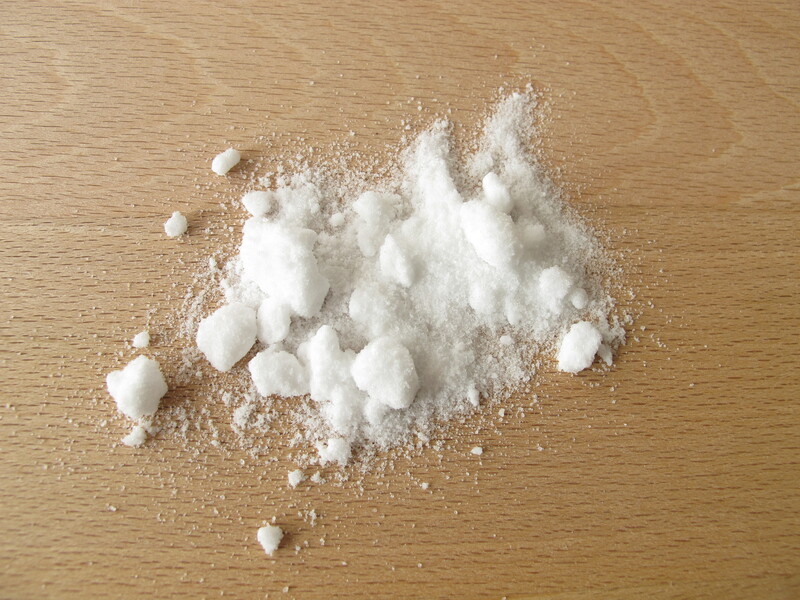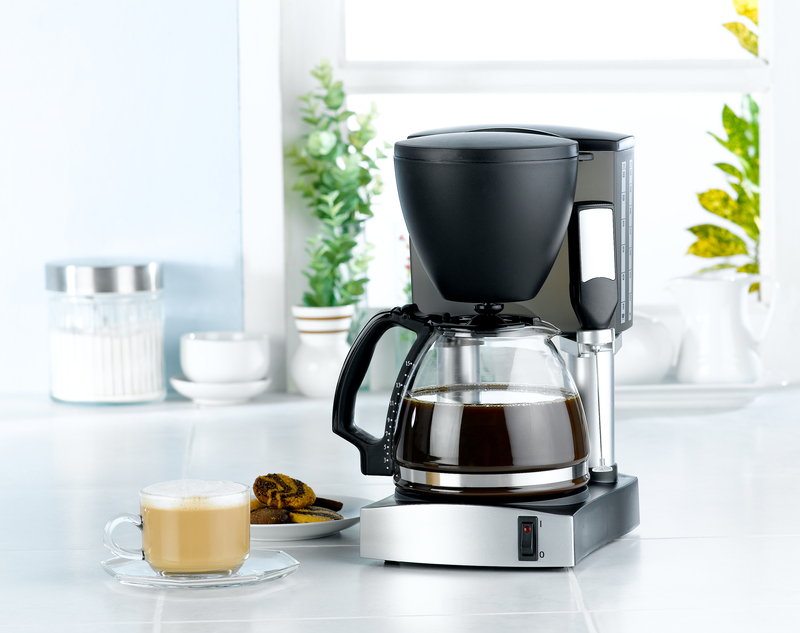Say No to Damp Smell with Easy Solutions
Posted on 28/06/2025
Say No to Damp Smell with Easy Solutions
Is the unpleasant damp smell lingering in your home or office becoming a constant nuisance? The musty odor not only affects the ambiance but also signals underlying moisture issues that can pose health risks and damage your belongings. Don't let the situation persist: learn how to banish musty damp smells with easy, effective, and straightforward solutions!
Understanding the Source: What Causes Damp Smell?
Before looking for solutions, it's crucial to understand what causes the damp, musty odor in your living or working environments. This smell typically arises from:
- Mold and mildew growth due to excessive moisture
- Poor ventilation in specific rooms such as the bathroom, basement, or laundry
- Leaks in plumbing, roof, or walls
- Water spills left unattended
- Absorption of moisture in soft furnishings, carpets, and clothing
Damp smell is more than just a minor annoyance--it may indicate potential health hazards and structural problems. Persistently moist conditions encourage fungi and bacterial growth, which can trigger allergies, asthma, and other respiratory problems. Thus, eliminating the damp, musty smell is essential for both comfort and well-being.

Why You Shouldn't Ignore a Damp, Musty Smell
While some may become nose-blind to such smells over time, it's important not to ignore this issue. Musty damp odors can indicate serious underlying issues, including:
- Health Risks - Mold spores are allergens and can cause or aggravate respiratory conditions, skin irritations, and weaken the immune system.
- Property Damage - Prolonged dampness can weaken walls, flooring, and structures, leading to costly repairs.
- Reduced Property Value - Persistent damp or musty smells can deter potential buyers or tenants.
Common Culprits of Damp Odors to Watch Out For
Emphasizing prevention is key. Major sources of damp smells include:
- Leaks from pipes, roofs, or windows
- Condensation issues, especially in kitchens and bathrooms
- Poor insulation leading to cold spots and moisture build-up
- Flooding or water ingress after storms or plumbing failures
- Neglected drains or gutters blocked with debris
Say Goodbye to Musty Damp Smells: Step-by-Step Guide
Now that you recognize the importance, let's talk about proven strategies to get rid of damp smells - for good! These solutions combine quick fixes, deep cleaning, and preventive measures.
Step 1: Identify the Moisture Source
- Inspect rooms thoroughly for leaks, condensation, or visible mold spots.
- Check basements, bathrooms, kitchens, and under sinks, as these are most prone to moisture.
- Examine ceilings and walls for water stains, bubbling paint, or warped surfaces.
- If the source is elusive, consider using a moisture meter for a detailed reading.
Addressing the source is critical--temporary solutions won't work if the damp returns.
Step 2: Improve Ventilation
- Open windows and doors daily to promote air circulation.
- Install or upgrade exhaust fans in your bathroom and kitchen.
- Use ceiling fans or portable fans to increase airflow.
- Dehumidifiers are excellent for persistent, hard-to-ventilate areas (like cellars or windowless bathrooms).
Good ventilation helps to lower humidity levels and prevent mold growth, greatly reducing the risk of recurring musty odors.
Step 3: Deep Clean and Dry Out Affected Areas
- Scrub mold or mildew from hard surfaces using a mixture of water and white vinegar or baking soda - both natural deodorizers and mold fighters.
- For porous materials (curtains, rugs, upholstered furniture), wash thoroughly and dry in the sun.
- If an item cannot be cleaned or still smells musty afterward, consider replacing it to avoid spreading the odor.
Never ignore small spots of mold--act immediately to prevent wider contamination!
Step 4: Eliminate Damp Smell with Natural Odor Absorbers
- Place bowls of baking soda, activated charcoal, or coffee grounds in affected rooms; each of these can neutralize odors and absorb moisture.
- Use open containers of white vinegar to capture persistent smells overnight.
- Essential oil diffusers with tea tree, eucalyptus, or lavender oils not only freshen up air but have anti-fungal properties.
Natural solutions are usually safe for homes with children and pets, and they don't add any harmful chemicals to the environment.
Step 5: Keep Surfaces Dry and Protected
- Wipe up spills and splashes promptly to prevent moisture buildup.
- Regularly wash and dry towels, bath mats, and kitchen cloths.
- Store items off the floor in basements and closets by using shelves or waterproof containers.
- Consider moisture-resistant paint or sealants in high-risk areas.
Preventing Musty and Damp Odors: Long-Term Strategies
Sustained prevention is your most effective weapon against musty smells reappearing. Here's how to keep them away for good:
1. Regular Maintenance Checks
- Schedule seasonal roof, gutter, and plumbing inspections.
- Seal gaps and cracks in windows, doors, and external walls.
- Check for hidden leaks under sinks and appliances like washing machines.
2. Manage Humidity Levels
- Keep indoor humidity below 60%; ideal levels range between 30-50%.
- Use a hygrometer to monitor moisture especially during humid seasons.
- Run air conditioning systems as needed--they naturally help dry the air.
3. Smart Home Improvements
- Upgrade insulation to minimize cold surfaces prone to condensation.
- Install vapor barriers on basement walls and floors.
- Opt for waterproof laminate or tile flooring in moisture-prone zones.
4. Declutter and Allow Air to Flow
- Avoid overpacking wardrobes, closets, and cabinets--the more crowded these areas, the less air circulates, leading to musty odors.
- Store items a few inches from the wall to allow for better airflow.
Even simple habits like occasionally leaving closet doors open can make a difference!
5. Use Natural Prevention Methods
- Cedar blocks or sachets placed in wardrobes and drawers deter both moisture and pests.
- Silica gel packets can be tucked into shoe closets, boxes, and nooks that often stay closed.
- Regularly sun-dry linens, shoes, and clothing that are not frequently used.
When Professional Help is Needed
Sometimes, musty damp odors persist despite your best efforts. If you've tried the above solutions and still notice a lingering smell or visible mold growth, it's time to call in the experts.
- Professional moisture and mold inspectors can use advanced tools to trace leaks, hidden mold, or underlying structural issues that aren't visible.
- Mold remediation specialists have the expertise and necessary treatment products to remove contamination safely and completely.
- Significant flooding or recurring water ingress requires a structural surveyor to assess potential long-term damage.
Never risk your health or that of your loved ones--severe damp and mold issues should always be handled professionally.

FAQ: Your Damp Smell Questions Answered
What is the fastest way to get rid of damp smell in a room?
Start by improving ventilation: open windows and use fans to boost airflow. Use natural odor absorbers like baking soda or activated charcoal right away. Deep clean affected spots and dry fabrics outdoors for best, quickest results.
Can air fresheners eliminate musty smells?
Air fresheners only mask the odor temporarily; they don't address the underlying moisture or mold. Always target the source for lasting freshness.
Is a dehumidifier effective against damp smells?
Absolutely. Dehumidifiers pull excess water vapor from the air, making conditions less friendly to mold and mildew. They're particularly useful in basements, laundry rooms, and small apartments.
What if the smell is coming from carpets or upholstery?
Consider steam cleaning or using a professional carpet cleaner. For persistent odors, sprinkle baking soda overnight, then vacuum thoroughly. If the smell remains, replacement may be necessary, especially if mold has penetrated deep.
Why does my bedroom smell musty even after cleaning?
Persistent bedroom damp smells often point to hidden issues such as mattress or underfloor moisture, blocked vents, or unnoticed leaks. Check all these areas and maintain regular cleaning and airing routines.
Final Thoughts: Say No to Damp and Musty Smells for Good
Damp smell solutions are easier than ever with these practical tips. Address moisture promptly, embrace proper cleaning habits, and use preventative methods to keep your home or office smelling fresh year-round!
- Inspect and fix sources of moisture swiftly.
- Maintain good ventilation and manage humidity levels.
- Deep clean and dry materials often--especially during change in seasons.
- Leverage natural deodorizers to banish musty odors sustainably.
By following these easy solutions, not only do you say no to damp smell, but you also improve indoor air quality, protect your health, and preserve your property. A clean, fresh-smelling space is well within reach--start today!



